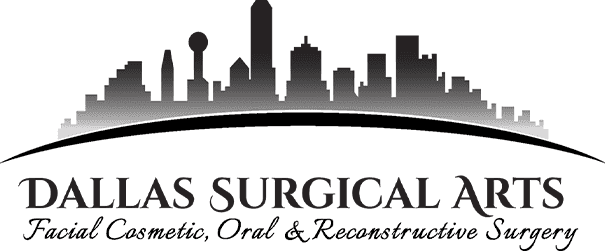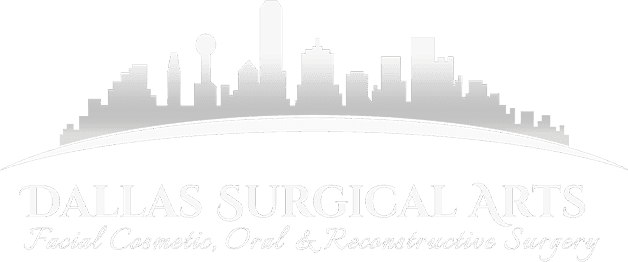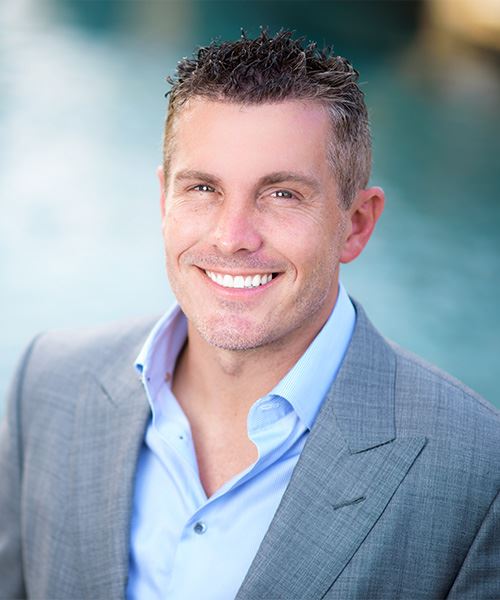How to prepare for surgery
We thank you for choosing our office for your procedure. We want to help you succeed in every way possible. You will have a pre-surgical appointment 2-3 weeks before your surgery with the surgical assistant that will be involved in your procedure. At this appointment, a 3D scan of your teeth will be obtained along with a CBCT scan to allow Dr. Sanovich and the engineer team to plan your surgery. The planning we use for orthognathic surgery is called VSP (virtual surgical planning), which allows your surgeon to perform the surgery on a 3D model of you prior to the surgery date so the exact movements of your jaw bones are known in advance. We will provide you a copy of the plan once it is complete, usually within 10 days following your pre-surgical appointment. If you have someone that will be taking care of you, it is recommended that they come to this pre-surgical appointment to hear and understand post-op instructions. All prescriptions that are called in are to be taken after surgery. We will provide one dose of arnica to help prevent bruising, which you can start taking 8 days prior to your procedure. If you would like to take another dose post-surgery, arnica supplements can be purchased at our office or in common drugstores. We recommend obtaining all necessary items prior to surgery, that way after surgery you can go straight home and rest. We work closely with your orthodontist and communicate with them regularly so we can gauge when your teeth are in the ideal position to complete surgery. The procedure usually lasts about 2-3 hours, and it is safe for you to go home afterward. If you would prefer to stay the night at the hospital, we can help facilitate that stay, although it is usually not necessary.
What to Expect the First Week:
Swelling
Expect significant swelling following the procedure. We often compare it to the type of swelling we would see after a difficult wisdom teeth extractions. Swelling will reach its peak during the 1st-2nd week and begin to dissipate thereafter. Do not lay flat; you want to try to keep your head elevated above your heart at all times. Sleep in a recliner or propped up with 2-3 pillows. Ice should be used for the first 48-72 hours. You will be given a head wrap with ice packs, but we also have surgical ice machines available for rent or purchase. You may use the ice pack for 20 minutes at a time. Direct placement of ice to the skin for prolonged periods of time may result in a burn. Your face will be numb, so it is important to exercise caution while using ice since you will not be able to feel the temperature on your skin. Your nasal passages will be swollen, resulting in congestion and difficulty breathing through your nose. Over the counter decongestants, expectorants and nasal sprays will help relieve these symptoms. Using a humidifier may help you breathe more easily after surgery.
Bleeding
Minor oozing from the incisions inside of the mouth should be expected within the first 72 hours. You will experience bleeding from the nasal passageway, due to blood in the sinuses. This is a normal part of recovery. Nasal sprays and decongestants will help alleviate symptoms. You should notify Dr. Sanovich if you experience a sudden or prolonged gush of bright-red blood. It is normal for dark-red blood clots may be coughed up or expressed through the nose toward the end of the first week.
Bruising
You can expect bruising to the face after surgery. The bruising should begin to dissipate after the first or second week. It will likely change colors from black/blue/purple, to green/yellow, and may travel down the neck into the upper chest. This is normal and should resolve in 1-2 weeks. Firm, swollen, & painful bruising can be a sign of a hematoma and should be reported to your surgeon immediately.
Numbness
Numbness in the face and upper lip may persist for weeks, sometimes months. This is a normal experience after this type of surgery. In general, the nerves in younger patients tend to recover more quickly. Although swelling can restrict facial movement, motor nerves are usually NOT affected during the procedure, so you should have normal face and lip movement. There is a slight chance that you could have permanent numbness or desensitization to the areas around the upper lip and nose following upper jaw surgery. Care is taken during surgery to prevent nerve injury, but it is a risk any time a nerve is stretched.
Activity Level after Surgery
Avoid any strenuous physical activity for 1-2 weeks.
You may return to school or light duty work (non-physical labor) within two weeks of the surgery, or as tolerated. Although you just had surgery, we recommend you do not stay in bed while awake. The more movement and blood flow, the easier recovery can be.
Try to transfer to a chair and walk around the house. You want to be as active as possible, but avoid doing anything too strenuous.
Diet
A strict non-chew diet is required for 6 weeks following surgery. Although you are not allowed to chew, it is very important to maintain a healthy caloric intake. You will be provided with a soft diet recommendation sheet. Following surgery, you will want to keep up your caloric intake as much as possible. It is extremely important to stay hydrated during this time.
Hygiene
You will have elastic bands in place following surgery and directions will be given as to how often you will need to change them. Begin using the prescribed mouth rinse, Peridex (Chlorhexidine), 2-3 times per day for the first week. Use a baby sized, soft bristled toothbrush to clean the teeth at least 2-3 times per day, before using Peridex. Keeping the mouth clean will reduce the chance of infection. After the first week, the sutures should start to dissolve as the gum tissue starts to heal. You may rinse with warm salt water as often as you like to help soothe the wounds. Avoid mouth rinses with alcohol (most of the commercial OTC mouth rinses contain alcohol), as they may burn and irritate the healing wounds. Avoid smoking as it will slow or prevent healing and may result in an infection. Avoid directing water picks to the incision sites during the first week, as fluid may become trapped in the wound.
Prescriptions after Surgery
- You will be prescribed medications based on your health history.
- You will receive pain medication to use for the first 3-5 days after surgery.
- An antibiotic will be prescribed for you to start taking the day after surgery.
- An antibiotic mouth rinse will be called in to use for the first week to help with hygiene.
- An oral steroid will be prescribed to help reduce swelling.
- Anti-nausea medication will help limit any nausea you may experience after surgery.
- A long-lasting local anesthetic (Exparel) will be injected at the time of surgery, which will help with the discomfort for up to 72 hours by keeping you numb.
- Most prescriptions will be given as a liquid since swallowing may be difficult.
What happens at the follow up visits?
- You will have a follow-up 1 week after the procedure to assess the incisions and overall healing progress. We will not remove sutures at this time, as we like to keep the sutures in the mouth for up to 2-3 weeks.
- We have a Candela Vbeam Prima Perfecta Laser Machine, pulsed-dye laser (PDL), that will help remove dark red or purple bruising more quickly.
- We take photos at each follow-up appointment to monitor your healing progress.
- You will have a follow-up 2-3 weeks after surgery, where any remaining sutures will be removed.
- You may call or email at any time during your recovery if you have any questions or concerns between follow-up visits.
When Should I Call My Doctor?
- If you have difficulty breathing
- If you have difficulty closing your eyes after surgery
- If you are unable to urinate
- If you have severe pain that is not improved with medications
- If you experience a rash, nausea, vomiting, severe headache, severe constipation, or other unexpected reactions
- If you have an oral temperature over 100.5 degrees.
- If you have a question or concern that must be addressed prior to the follow-up visit.
Who Should I Call if I Have Questions?
Please call our office at (972) 914-3660. You may also email photos or questions to info@dsa.live and someone will get in touch with you within 24-48 hours.


 Dr. Randy R. Sanovich, DDS Board Certified Facial Cosmetic Surgeon, Board Certified Oral & Maxillofacial SurgeonAs a dual board-certified surgeon in oral, maxillofacial, and facial cosmetic surgery, Dr. Randy Sanovich is committed to providing optimum results for his patients. Dr. Sanovich’s extensive training ...Learn More
Dr. Randy R. Sanovich, DDS Board Certified Facial Cosmetic Surgeon, Board Certified Oral & Maxillofacial SurgeonAs a dual board-certified surgeon in oral, maxillofacial, and facial cosmetic surgery, Dr. Randy Sanovich is committed to providing optimum results for his patients. Dr. Sanovich’s extensive training ...Learn More Dr. Daniel Sanovich Board Certified Oral & Maxillofacial Surgeon
Dr. Daniel Sanovich Board Certified Oral & Maxillofacial Surgeon Dr. Max McCullum Board Eligible Oral & Maxillofacial Surgeon
Dr. Max McCullum Board Eligible Oral & Maxillofacial Surgeon Jennifer Laudien Licensed Esthetician, Senior Certified Laser Hair Technician
Jennifer Laudien Licensed Esthetician, Senior Certified Laser Hair Technician Hannah Killeen Licensed Esthetician, Certified Laser Technician
Hannah Killeen Licensed Esthetician, Certified Laser Technician Martin Serralde Registered Nurse
Martin Serralde Registered Nurse







